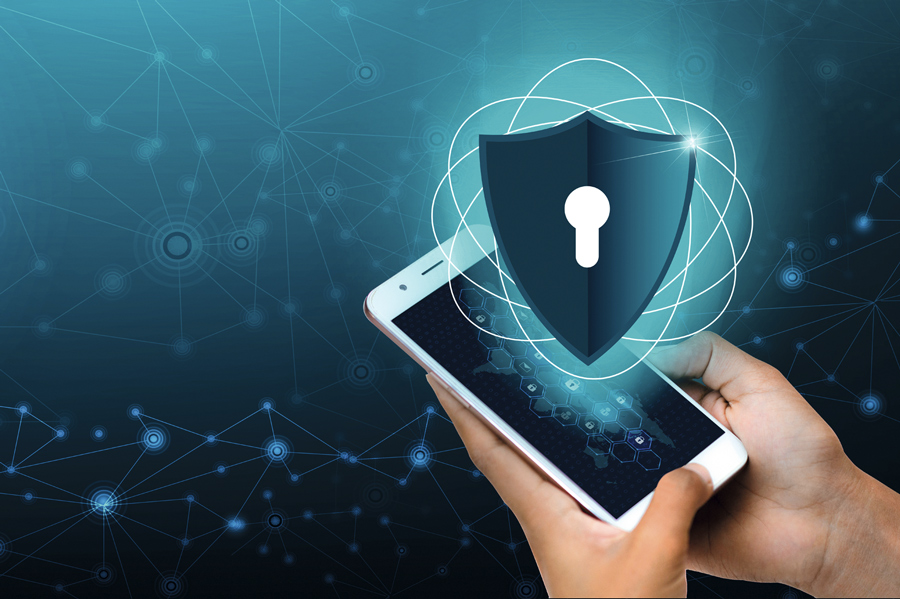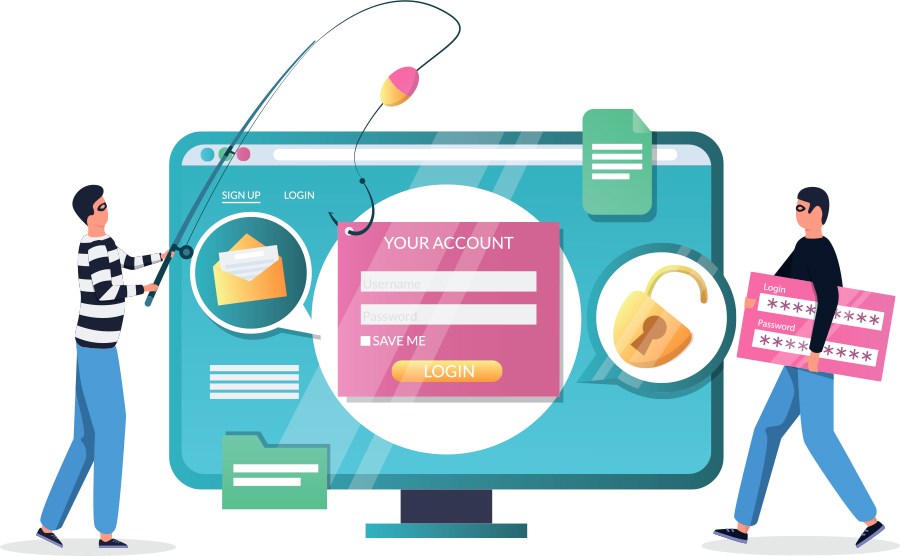
How to make your smartphone world safe
The phone is a whole world in which the necessary functions are grouped – from the camera and email to banking and document storage. Using the Internet on a smartphone, you can quickly purchase any goods: food, medicine, clothing, household items; pay for utilities or other services; order food. At the same time, this digital activity has led to an increase in phone fraud. Unfortunately, the deceived themselves are often to blame because they do not follow simple safety rules. Therefore, consider the main criminal manipulation to be armed against fraudsters.

Журнал «Народний банкір» №16/2021
"Your card is blocked"
One of the most popular scams is “bank card blocking.” Having obtained lists of phone numbers, the attackers begin to send SMS or messages to instant messengers, which inform that the card is blocked. The reasons are different, as if "employees noticed suspicious activity" or "someone tried to withdraw money from your account." And in order to prevent blocking, you need to go through authorization by calling the number indicated in the message.
On the other end of the line, there will be a fake "bank security representative." He will ask you to provide personal data – card number, expiration date, PIN-code, CVV-code, keyword... As soon as a person provides information, the scammers will gain access to the account and withdraw money. Sometimes "bank employees" call without preliminary SMS, but then the scheme is repeated.
"A relative had an accident"
And messages like "Your relative has an accident, and money is needed" have already become classics. Funds are usually needed urgently, and no one should be told about it because, for example, "a good policeman risks his job if they find out that he made it possible to call and negotiate peacefully with the victims." Having received a message with the following content, a person begins to panic and tries to help and, in a stressful state, transfers funds to the specified account. Therefore, if you receive such news, first of all, try to contact the person you were told about. If the person does not get in touch, try to find out more about the situation: on which road it happened, at what address, how your relative looks like.
Twin websites
Another way to steal bank card details is phishing. Scammers create an exact copy of a banking website or a popular store and lure people to it in various ways. For example, they send an invitation by email allegedly from your bank. Below in this letter, there will be a link supposedly to the official website of the bank. An inattentive person will not notice that the resource is fake, follow the link, and enter personal data. Therefore, knowing the correct address for your bank's website should be mandatory.

Журнал «Народний банкір» №16/2021
“Attack of the Clones”
Another chance to get rid of your own funds is when the fraudster finds out your "financial" number (the phone to which your bank cards are linked) and then "clones" it. The thief contacts the mobile operator and orders a SIM card reissue. But first, he proves through manipulation that the number belongs to him. To do this, he needs to indicate the numbers of the last calls and the amount of top-ups.
To collect this information, the swindler will first replenish the account on the phone, and then he will call and drop the call. If you try to call back the missed number, then he has all the necessary information to reissue the SIM card. Then the swindler will transfer the money to his account or pay for the goods on the Internet, confirming the transaction using the code that will come in an SMS message.
To avoid becoming a victim of scammers, you should adhere to the rules:
-
Be attentive to the websites where you buy and pay for the goods. Do this only on trusted resources. Memorize the official addresses of the websites you use. Check websites on cyber police services STOP FRAUD the EMA Association Black List ЕМА.
- Order an internet card from the bank. This is an international virtual card for online payments; its number and validity period is known only to the owner. It is only necessary to transfer the amount required for a specific purchase to it.
- Provide only the 16-digit number of your card. It is also possible, but not required, to provide your name and full name.
- Keep secret: codes of banks and mobile operators, passwords in Internet banking. Do not use the phone number linked to your bank account in social networks, ads, and contacts with counterparties/customers. Set PIN to SIM with complex 8 digit password and phone screen lock password.
- Bind the SIM card of the phone to your passport, and then no one can reissue it.

Журнал «Народний банкір» №16/2021
Less is better
With the development of social networks and other means of communication about a person, you can collect a lot of information in just a matter of minutes. And, as a rule, he laid out everything about himself, in general. However, it would help if you always remembered that less is more. Personal data is your name and surname, place and date of birth, passport data, residence address, education, marital status, profession, position, income, etc. Also, it is the accounts in social networks, correspondence on the Internet, online accounts...
Indicating the status on Facebook, uploading a photo with geolocation, paying for something using a smartphone, hiding an intimate photo, or secret documents on a Google drive, we leave a digital footprint and create cyberspace around us. Scammers may well take advantage of it. Therefore, it is worth following the rules of conduct in the online space:
- Have a strong password. Create random sequences of numbers and letters of at least 8 characters. Set a different password for each account and change it from time to time. Be careful with links, push messages, messages, especially if it's an explicit clickbait (a headline that makes an internet user click on it). Don't overuse geolocations.
- Try not to connect to free Wi-Fi in public areas. Do not include a phone number or address on social media if this is not a work page (and then it should be a separate phone number).
- View the user agreement when you subscribe to a page, an application, and the like. Regularly update the software on your gadgets, check the work of the antivirus.
Be circumspect in the digital space!
- TEST: How knowledgeable are you about security issues?
- Non-pattern deposit: How to work mindfully with deposits through meditation
- Deposit agreement: let's read together
- Opening an account in FUIB using "Diia" in 5 minutes
- Sergei Zubov: "Stability in the market, loyalty to the customer, efficiency in decision-making are the three components of your bank."
- ТОП-3 ШАХРАЙСЬКИХ СХЕМ
Отримати на e-mail
Новину відправлено

Перевірте e-mail Дякуємо за Вашу цікавість!




questions
complaint or suggestion
networks
Feedback